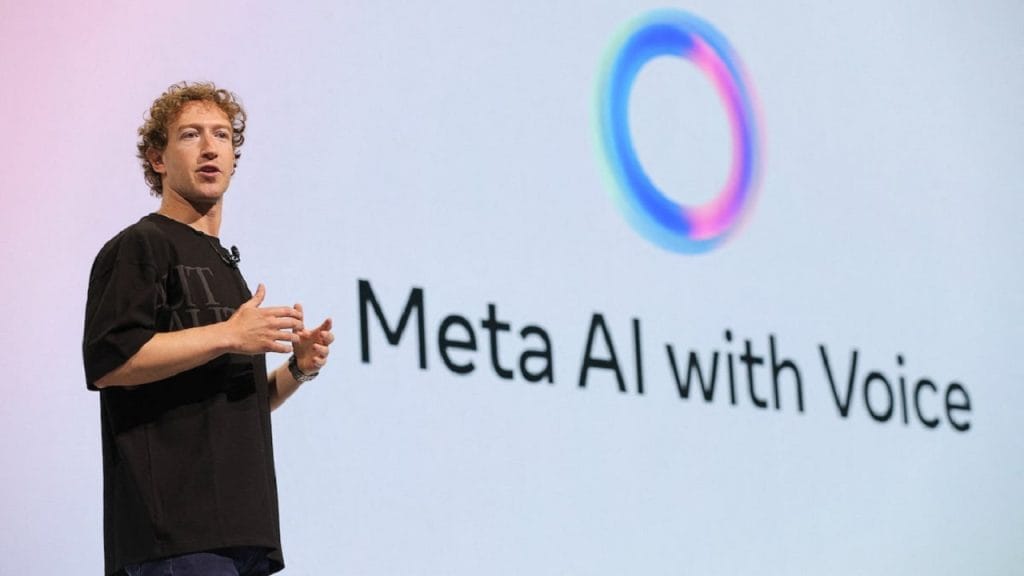Meta is making waves again, and this time, it is capturing attention in the AI world for all the right reasons. The company recently made headlines by recruiting Yang Song, a renowned researcher from OpenAI, to take the role of research principal at Meta Superintelligence Labs. This move is not just another hire; it is a statement about Meta’s growing ambitions in artificial intelligence research. For anyone following AI trends, this recruitment signals that Meta is ready to compete at the highest levels in the tech world.
Yang Song’s credentials are nothing short of impressive. During his tenure at OpenAI, he led the strategic explorations team, contributing to groundbreaking AI models capable of understanding and processing vast and complex datasets across multiple modalities. His work at OpenAI included projects that influenced the development of DALL-E 2 and other multimodal AI systems. Song also has a rich academic background from Stanford University, where his research laid the foundation for several innovations in machine learning and AI safety. This experience positions him perfectly to drive forward Meta’s ambitious AI goals.

Meta’s recruitment of Song is part of a larger, aggressive strategy. Over the past few months, the company has onboarded at least 11 top-tier AI researchers from leading institutions such as OpenAI, Google, and Anthropic. The goal is clear: to build a research team capable of rivaling the very best in the AI field. Song now reports directly to Shengjia Zhao, another OpenAI alumnus who has been overseeing Meta’s AI efforts since July. Zhao’s credentials are equally noteworthy; he played a significant role in the creation of ChatGPT, GPT-4, and other foundational AI models. Together, Song and Zhao bring unmatched expertise and experience that could dramatically accelerate Meta’s AI research trajectory.
This move has far-reaching implications. First, it underscores Meta’s determination to expand its Superintelligence Labs into a leading force in artificial intelligence research. Despite some staff turnover since the lab’s inception in June, the company remains committed to attracting top talent. This recruitment strategy demonstrates Meta’s focus on both innovation and retention, ensuring that its AI division remains competitive and forward-thinking. The Superintelligence Labs are particularly focused on cutting-edge AI, exploring new models, multimodal AI systems, and complex problem-solving applications.
Meta’s AI ecosystem is more intricate than ever. Alongside the established Facebook AI Research (FAIR) division, the Superintelligence Labs are now tackling ambitious AI projects. While FAIR continues foundational research and improvements to existing AI models, the Superintelligence Labs explore futuristic AI systems that could redefine how artificial intelligence interacts with the world. By maintaining this dual approach, Meta ensures it is innovating both at the foundational and advanced levels.
Why should this matter to the AI community and tech enthusiasts? Meta’s aggressive recruitment strategy signals that the company is serious about shaping the future of AI. Yang Song’s expertise in handling complex, multimodal datasets, combined with Zhao’s track record in AI breakthroughs, could result in innovations that challenge the dominance of other AI leaders. Areas to watch include generative AI, AI efficiency improvements, reinforcement learning techniques, and cross-modal intelligence systems capable of understanding text, images, and video simultaneously.
Meta’s efforts also reveal a larger trend in the tech industry: the competition for top AI talent is intensifying. Companies are increasingly willing to make bold moves to secure researchers with deep expertise and proven track records. As AI continues to evolve rapidly, securing the right talent is often the fastest path to innovation. Meta’s approach demonstrates that it is not merely following trends but actively trying to shape the AI landscape.
The hiring of Yang Song also provides insights into the type of research Meta prioritizes. Song is known for his work in machine learning safety and alignment, areas that have become crucial as AI models grow more capable and autonomous. By bringing in experts like Song, Meta is signaling that it values both innovation and responsible AI development. This could give the company an edge in creating AI systems that are both powerful and safe for practical applications.
For enthusiasts and professionals following Meta’s AI journey, this is an exciting development. The combination of FAIR’s foundational research and the ambitious projects at Superintelligence Labs suggests that Meta is preparing to launch AI models that could have real-world applications across industries. Whether it is healthcare, education, creative content, or business analytics, these innovations could reshape how AI integrates into everyday life.
Meta’s strategy also reflects a growing trend in the AI industry: collaboration and mobility of talent. With researchers moving between organizations like OpenAI, Google, Anthropic, and Meta, the transfer of knowledge accelerates overall innovation. Song’s move from OpenAI to Meta exemplifies this dynamic. The insights, techniques, and frameworks he brings could influence not only Meta’s work but also the broader AI research community.
Investors and technology watchers should note that Meta’s investment in top-tier AI talent is not just about research prestige. The company is positioning itself for a competitive advantage in AI-driven products and services. By recruiting experts with deep knowledge of AI safety, multimodal learning, and generative models, Meta is laying the groundwork for systems that could outperform current AI offerings in both capability and reliability.
Meta is also strategically blending long-term vision with immediate impact. The company continues to work on current AI products while simultaneously exploring future technologies. The Superintelligence Labs’ mission aligns with this dual approach: to innovate boldly while maintaining research that enhances Meta’s existing platforms. As a result, the company is well-poised to deliver breakthroughs that could benefit billions of users worldwide.
For readers interested in tracking Meta’s AI developments, the official Meta AI blog provides regular updates on research projects, insights from the research team, and details on the company’s AI initiatives. You can visit Meta AI Blog for deeper insights. Following these developments offers a window into how Meta is positioning itself in the AI arms race and what the future of AI might look like.
Meta’s decision to hire Yang Song is more than a talent acquisition; it reflects a broader strategic commitment to leading in AI research. The move highlights the company’s focus on advanced research areas, including generative AI, reinforcement learning, multimodal AI systems, and machine learning safety. It also reinforces the message that attracting the right talent is central to technological leadership in AI.
In conclusion, Meta’s acquisition of Yang Song demonstrates a strong, forward-looking approach to AI. By combining the expertise of Yang Song and Shengjia Zhao with a growing team of AI researchers, Meta is preparing to make significant strides in the AI landscape. Whether you are an AI enthusiast, a tech investor, or someone curious about the future of technology, the developments at Meta Superintelligence Labs are worth watching closely. The next wave of AI innovation is coming, and Meta is clearly positioning itself to be at the forefront.
